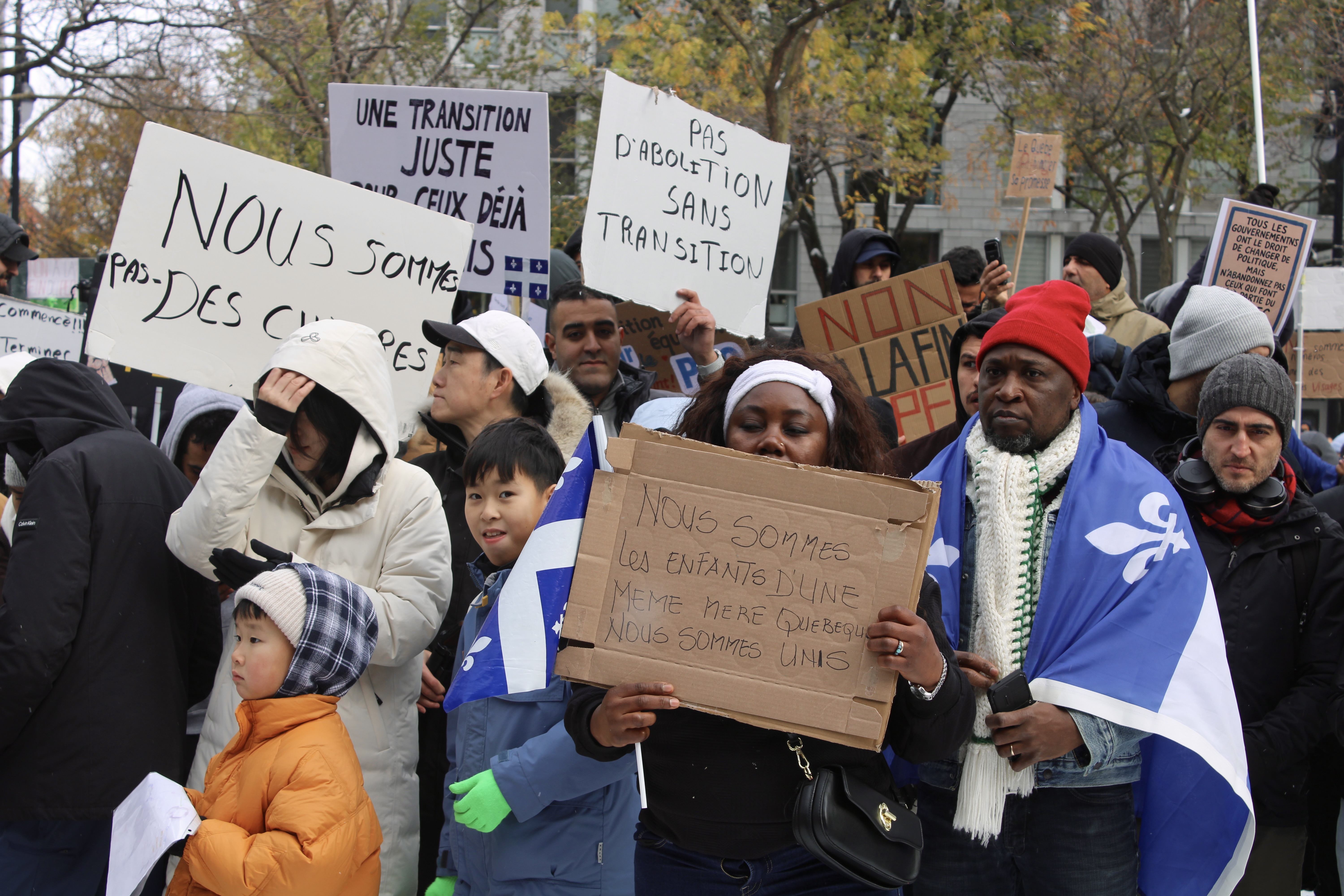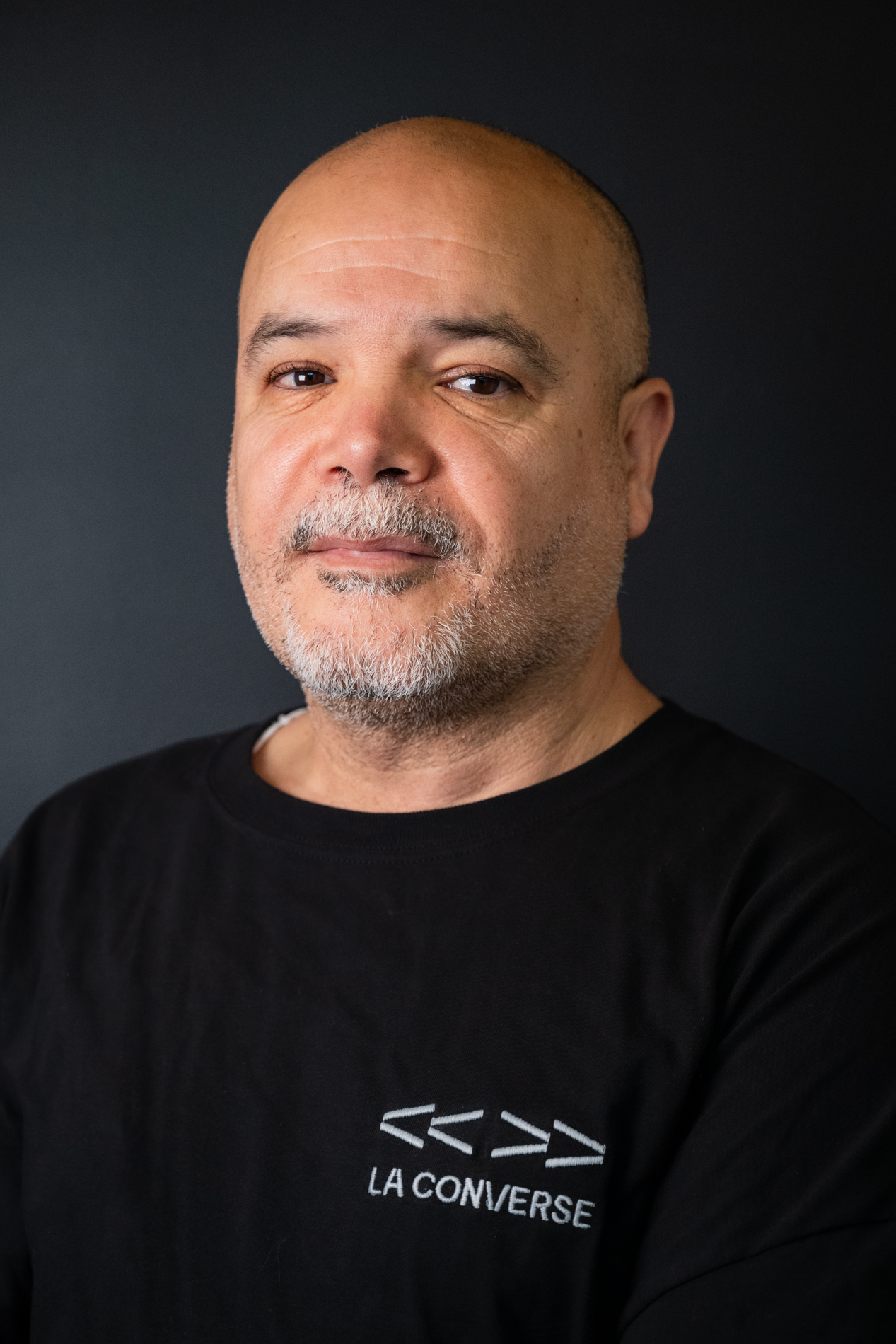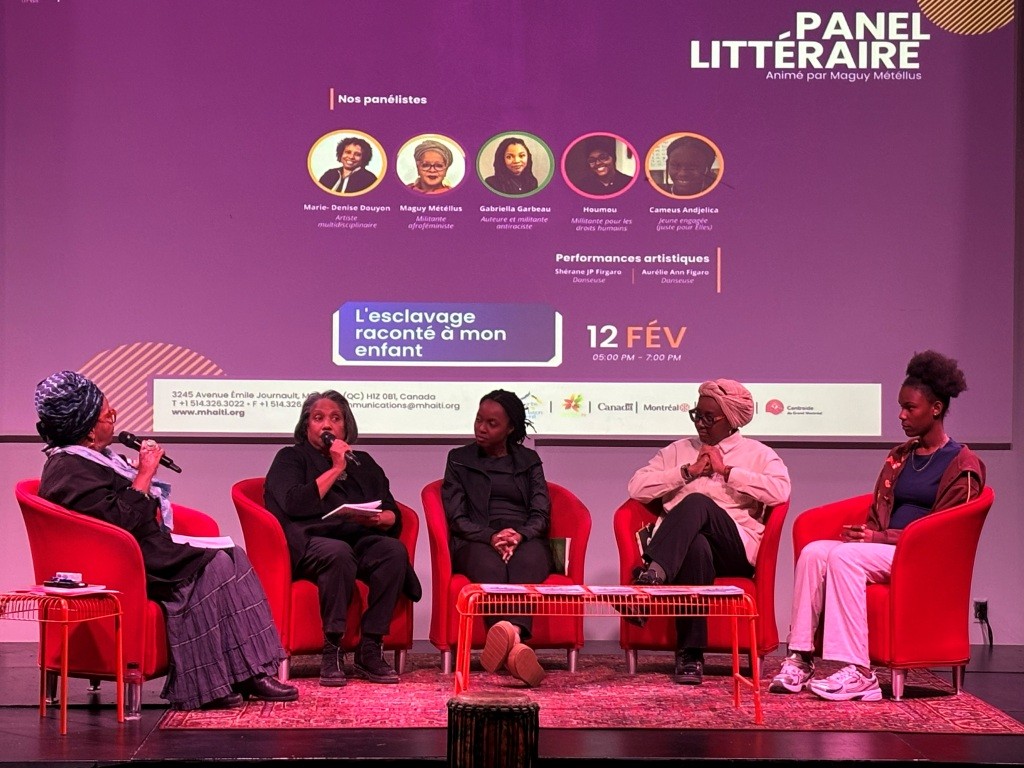Since Quebec tightened its immigration rules — culminating with the abolition of the Quebec Experience Program (PEQ) on November 19 — immigration policy analyst Yacine Kraimia has observed an unprecedented shift. According to him, thousands of French-speaking candidates who once planned to settle in Quebec are now choosing Ontario, New Brunswick, and Alberta instead. “Right now, coming to Quebec is suicide,” he says.
At 7:45 p.m., after a day he describes as “long and exhausting,” Yacine Kraimia still takes the time to speak with La Converse. In a calm voice, he describes his volunteer work: “I try to give information, guide people, orient them.”
His relationship with immigration actually began much earlier, in 2009, when he himself arrived in Canada. At the time, compatriots would message him on his personal Facebook account asking for advice on immigration procedures and programs.
“I wanted to help, so I would do research to find resources online, to point them in the right direction. But I found nothing — aside from official government sites that are like labyrinths. They’re very hard to understand, and they don’t even have all the information,” he recalls.
Faced with this gap, he dove into laws, regulations, and immigration programs. He says he eventually “untangled the whole thing” and absorbed the complexity of Canadian and Quebec policies.
“After that, I had the idea: why not share simplified information on a page under my name?”
His Facebook page “Yacine Kraimia” launched in early 2021. He began by explaining study permits. Questions quickly broadened. “People started asking for explanations about other immigration pathways. I expanded my expertise.”
“I prepare people for the shock”
His Facebook page now has more than 800,000 followers. Kraimia notes that he has no privileged access to government information. His predictions, he says, come from his experience and analytical skills. “I get no special treatment. I can anticipate because I have the experience, I know the government’s patterns. And I read a lot, so I know where the government wants to go.”
For him, Canadian and Quebec immigration policy follows regular cycles: periods of openness, followed by periods of closure. “Every four or five years, the cycle repeats. When the economy is good, we want immigrants. When there’s a crisis, we tighten up.” He adds that every 10 to 15 years, there is a significant crisis, citing the post-2008 slowdown and the post-Covid period.
When the conversation shifts to current events in Quebec, his voice becomes sharper, almost cutting. The abolition of the PEQ, announced on November 19 by the Quebec government, is only part of the equation, he argues.
“Careful — we talk more about the PEQ because it’s the biggest program. But there are also the three pilot programs ending in January,” he says, referring to the food processing worker pilot, the beneficiary attendant pilot, and the pilot aimed at attracting skilled workers in AI, IT and VFX. “All of that is disappearing,” Kraimia warns.
He describes a profound transformation in Quebec’s immigration model. The PEQ, heavily used by students and temporary workers, had no caps: “You meet the conditions, you get your CSQ. It was clear.” With the new PSTQ (Specialized Worker Program), replacing both the PRTQ and the PEQ, everything changes: “With the PSTQ, they’re saying: ‘Submit your application and we’ll see who we select.’ And spots are limited. They’ll select 1,000 people a month, while foreign workers and students number in the hundreds of thousands.”
Distress messages: “People are crying”
Throughout the conversation, Kraimia repeatedly mentions the messages he receives. “People are frustrated, desperate. I feel bad for them. People are crying. They tell me: ‘I sold everything in my country, I worked to get experience, my kids are in school, and now I know I won’t be accepted.’”
Those living in Montreal or Laval feel particularly trapped, he says. “The minister said it: people in Montreal and Laval won’t be accepted. What do you want them to do? They’ve worked here for three years, their kids are in school. They have no options.”
According to him, PSTQ acceptance criteria are complex: “They look at where you gained your experience, where you’ll work, whether you have a job offer, which city it’s in, where you live, where you’ll live… It’s complicated, very granular.”
Thousands of candidates are changing course
Until now, Quebec was the top destination for French-speaking immigrants to Canada, especially those from the Maghreb, Sub-Saharan Africa, and France.
After recent changes, the wind is turning, Kraimia observes. “Before, I would get thousands of messages a day from people wanting to come to Quebec. Now they tell me: ‘Good thing I didn’t come — I’m changing my plans.’”
He describes a “massive” trend: “Nobody wants to come to Quebec right now. We’re talking thousands of people turning away. The French? Forget it. Algerians and Moroccans too.” Indeed, after Quebec imposed an eight-month moratorium on the PEQ and PRTQ starting October 31, 2024, the federal government opened the door wide for francophone candidates heading to the rest of Canada.
Ottawa increased the share of permanent residents admitted under francophone programs outside Quebec from 6% to 10%. “I set very aggressive targets… I’m willing to welcome these people; they’re brilliant,” Canadian Immigration Minister Marc Miller said on October 31, 2024.
Recent Express Entry draws under the “French-language proficiency” category speak for themselves: 10,500 candidates were invited in the two draws of October 2025 alone.
Meanwhile, since the PSTQ launched in July, and despite Quebec’s promise of bi-weekly draws, only a few rounds were held in July and August. Only around one thousand candidates were selected, all living outside Greater Montreal.
“Apply to the PSTQ, but get a Plan B ready”
With the PEQ abolished and PSTQ criteria tightened, francophone candidates are turning to other provinces. Among Kraimia’s followers, two provinces stand out: Ontario (especially Ottawa) and New Brunswick, already growing in popularity over the past few years. “Ottawa is bilingual and close to Montreal. People like that.”
New Brunswick attracts candidates with its simpler rules: “With a college degree and 18 months of study, you can apply for permanent residence. It’s simpler than here.”
Alberta and Saskatchewan also come up, although English is a challenge for francophones. But many from the Maghreb are already familiar with New Brunswick’s programs — an option that was once marginal but is now central.
Across other immigration advice pages, morale is also low. On the Facebook page VF Immigration, one user affected by the abolition of the PEQ calls the PSTQ “Hunger Games.”
To temporary residents already in Quebec, Kraimia suggests a two-step strategy: “If you meet the criteria, apply to the PSTQ. But don’t wait too long.” He recommends preparing a Plan B: “Explore other provinces. A declaration of interest isn’t a commitment. Apply elsewhere too.”
To those still abroad, his advice is blunt: “Don’t come to Quebec. Right now, it’s suicide. The PSTQ is a lottery. A million people are playing, one or two win. There’s no guarantee.”
Public pressure: “The government could reverse course”

Could the Quebec government change its mind in response to protests following the PEQ abolition?
Asked this, the expert says he doesn’t rule out a reversal — “but only if the pressure is fierce.” He recalls a precedent: “In 2019, they tried to tighten the PEQ. After two months of intense protests, the government backed down and introduced a grandfather clause.”
He believes the quick reaction from Quebec’s minister of immigration and the premier following the November 17 protest in front of MIFI headquarters can only be explained by public pressure. “Usually, this minister doesn’t speak to anyone, doesn’t listen, he’s stubborn… This time, he reacted quickly in a TV interview, and shortly after, the premier spoke to say: ‘There will be no grandfather clause.’ What does that tell you?”
According to Kraimia, these rules won’t last: political cycles will shift, and the CAQ is expected to leave power in October. But he warns the Parti Québécois, currently leading in polls, may extend or strengthen restrictions. Improvement is not guaranteed in the short term. “It could get worse before it gets better,” he concludes.
He believes economic consequences will eventually force a shift: “International students alone bring in significant revenue to Quebec (4.2B$ in 2022). If their numbers drop by three-quarters, some schools will close.” An unthinkable scenario, he says — one that he believes will push a future government to ease some immigration rules.




.png)


.jpg)